
By Jae-Ha Kim
jaehakim.com
June 20, 2019
![]()
Park Cha Oh-Reum (played by Go Ara)
Im Ba-Reun (played by Kim Myung-Soo)
Han Se-Sang (played by Sung Dong-Il)
↑Note: Korean names denote the surname followed by the given name.
“Ms. Hammurabi” is a great series filled with memorable actors, but Sung Dong-Il steals just about every scene he’s in. The veteran actor plays Han Se-Sang, a head judge who has two young adjudicators under his supervision. Im Ba-Reun has been working with him for a few years. Their latest addition is an idealistic feminist named Park Cha Oh-Reum.
Unlike most of her colleagues, she refuses to standby when she sees sexism at play. She stops a pervert from groping a young woman on the train, while others look on nervously. And when the men at work talk about how the victim was partially at fault for not dressing more modestly, Oh-Reum comes to work wearing a flashy (for her job) suit with a short skirt. This causes a small scandal about her reputation.

Because she shows little interest in kowtowing to the men in power, Oh-Reum is berated for being overly aggressive and is referred to as Ms. Hammurabi in a derogatory manner. (Hammurabi was a king of the First Babylonian Dynasty, who was famous for exacting harsh penalities on criminals.) At first, Ba-Reun isn’t sure what to make of her and remains standoffish. But over time, he comes to realize that she is fighting for justice. He can either pretend that everyone is being treated equally or he can fight for people to receive fair treatment.
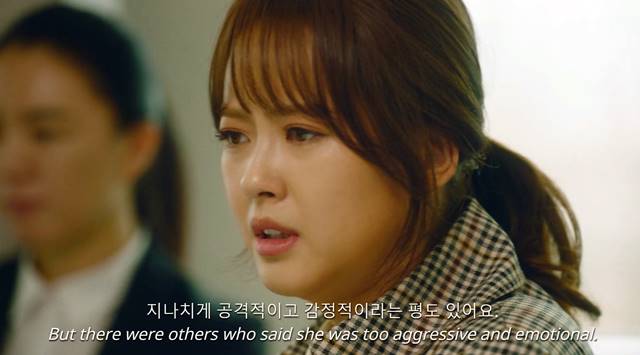
He’s also confused by his feelings for her. When they were teenagers, they attended neighboring high schools. He had a huge crush on her back then and it’s clear that he still is interested in her. She, however, has no time for romance. Her family once was well-to-do. But after her father’s death, she was responsible for helping to pay for her mother’s medical bills and helping out at her grandmother’s small store.
This K-Drama did an admirable job of tackling social issues that are prevalent worldwide, but especially in Korea. One case that the judges tackle revolves around a group of greedy siblings bent on cutting each other out of their elderly father’s will. Some people will say the scenes are comical in how over-the-top dramatic they’re presented. Sadly, I have seen this play out between real-life families that I know.
Ever since their father got sick and was unable to take care of himself, the siblings left him in the care of their youngest brother — the only one who hasn’t asked for any money. Their father lives with that son. At first, they try to cut each other out of their father’s will. Later, they worry that their dad may leave everything to the youngest son. So the siblings reveal that their brother was adopted and therefore isn’t a real relative, since he doesn’t share their bloodline.
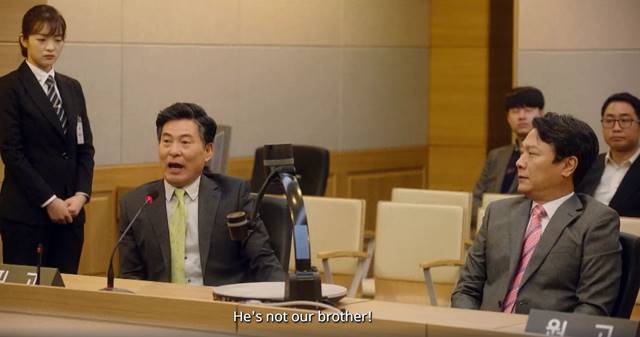
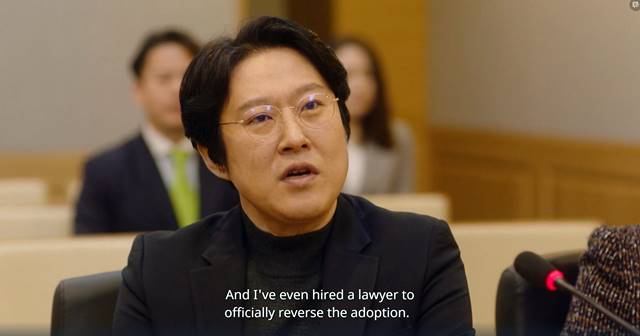
The youngest says that he has never wanted any money from their father and that if that’s what they’re worried about, he will permanently leave the family so that they can end their legal squabbles and their father can have some peace.
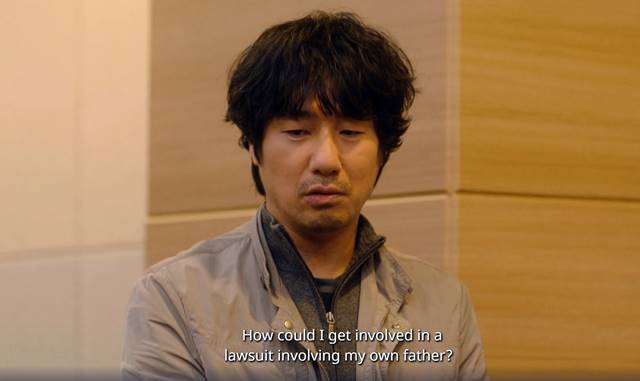
It was a very powerful scene. The father makes it clear who his child is and who he wants to live out his life with.
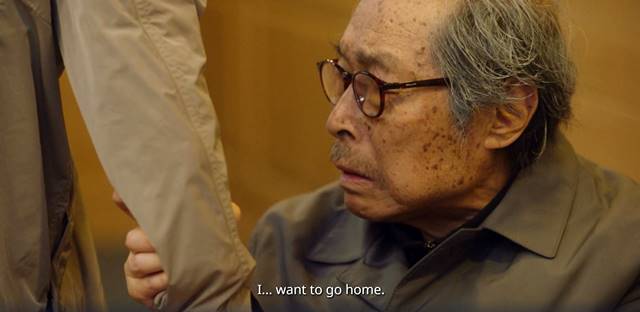
Adoption and the concept of real children pop up often in K-Dramas. It’s not a subject that many Koreans are comfortable discussing. It makes me feel grateful that a subject that needs to be talked about more among the general public is being depicted as a part of life that is sometimes necessary.
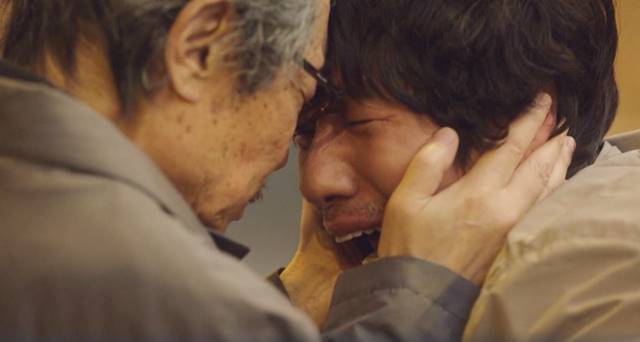
Hierarchy and its place in the office is also depicted as a ridiculous way to judge an employee’s worth. When a senior judge works his subordinate nearly to death, Ba-Reun joins Oh-Reum in trying to get him punished. He is called into his department head’s office and gently told to let it slide, because the judge has seniority in both age and employment.
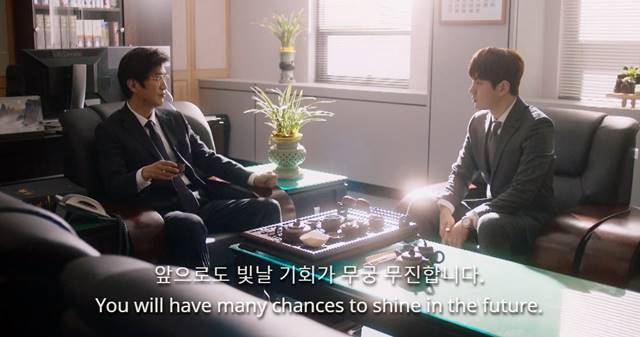
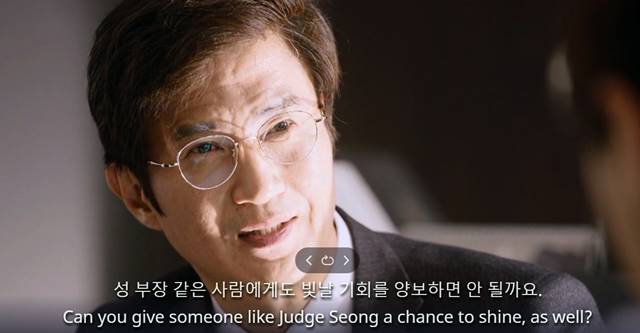
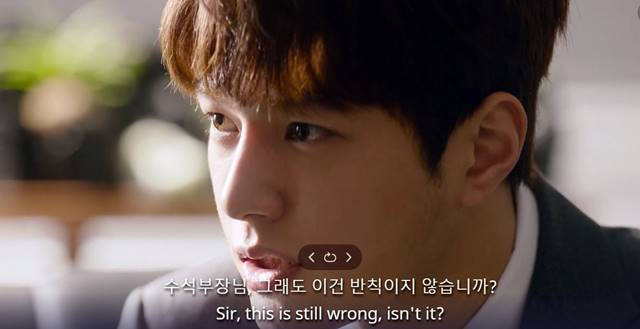
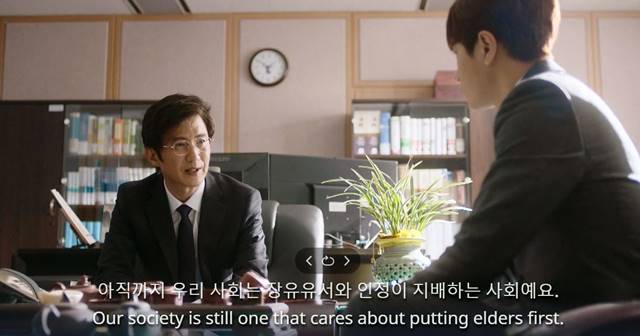
There’s also a subplot with the office secretary (played by Lee Elijah) being gossiped about because she’s gorgeous, well dressed and refuses to talk about her private life. The men spread rumors among themselves that she must be a bar girl or an escort, because they can’t imagine that a woman that beautiful could do anything but use her looks.
The best moment in this series occurred in Episode 15, when Sung Dong-Il turned in a tour de force performance. Inspired by his underlings, he makes an impassioned speech to his fellow senior judges. He chews them out for turning a blind eye to corruption when the plaintiff is well connected and for disgracing their robes by allowing themselves to be bought for the right price. He reminds them that there are people’s lives they are responsible for.
Sung and Go Ara starred opposite each other as father and daughter in “Reply 1994.” They’re joined here by Kim Myung-Soo (better known as Infinite’s L), who has the least splashy role of the trio. The three share great chemistry and show a familial relationship that’s filled with love, laughter and arguments. They are the colleagues you want to have your back.
If I have one criticism, it’s that Oh-Reum cried too much. Of course tears shouldn’t be viewed as a sign of weakness. There is a place for them, though, and crying almost non-stop at work isn’t one of them.
Drinking Culture: OK, wait, make that two criticisms. Korea has such strict laws about drug use, but its drinking culture is strong. I don’t enjoy liquor and therefore I choose not to drink. I don’t mind others doing so, as long as it’s within reason. But sloppy drunks are just ridiculous. Ba-Reun doesn’t like to drink and can’t hold his liquor. He’s vocal about this, but he’s still pressured to drink: as a bonding experience; as a sign of his manhood. The scenes were played off as cute, which just feeds this idiocy that someone is less than if they don’t toe the line when it comes to downing alcohol.
Airdates: Sixteen episodes — each about 1-hour long — aired on JTBC from May 21 to July 16, 2018.

Spoiler Alert:
Oh-Reum’s family was wealthy when she was younger. Her strict father beat her mother regularly. Oh-Reum was terrified of angering her father. So when the prestigious piano teacher he hired for her began to sexually abuse her, she didn’t tell anyone. It was better for her to endure it, she thought at the time, than to face her father’s wrath. He would blame her for leading the pervert on. The father ends up committing suicide, not because he’s ashamed of how he treated his family, but because his business failed. Her mother saw him kill himself, went into shock, lost her memory and remained hospitalized for most of the series.
Ba-Reun grew up thinking that his hard-working mother was the head of their family, because she was the breadwinner and did just about everything else, while his dad stayed at home sleeping and drinking. It isn’t until much later that he learned of all the things his father had done to benefit society. He was on call to donate blood (he has a rare blood type) at the drop of a hat. He doesn’t think twice about offering to support a friend’s family after the friend dies. All this is wonderful, but he could’ve done a better job of helping his wife pay their bills. The burden was rough on her to do alone.
As for the secretary (played by Lee Elijah), she’s working as a writer at night and earning lots of money doing so.
© 2019 JAE-HA KIM | All Rights Reserved






I love this drama, it was great to see it create the atmosphere for getting you to think about human rights. I also think I was the same way about the romance and not caring as much about that as the rest of the story
Yes! One of those great Korean dramas that shed so much light on social realities!